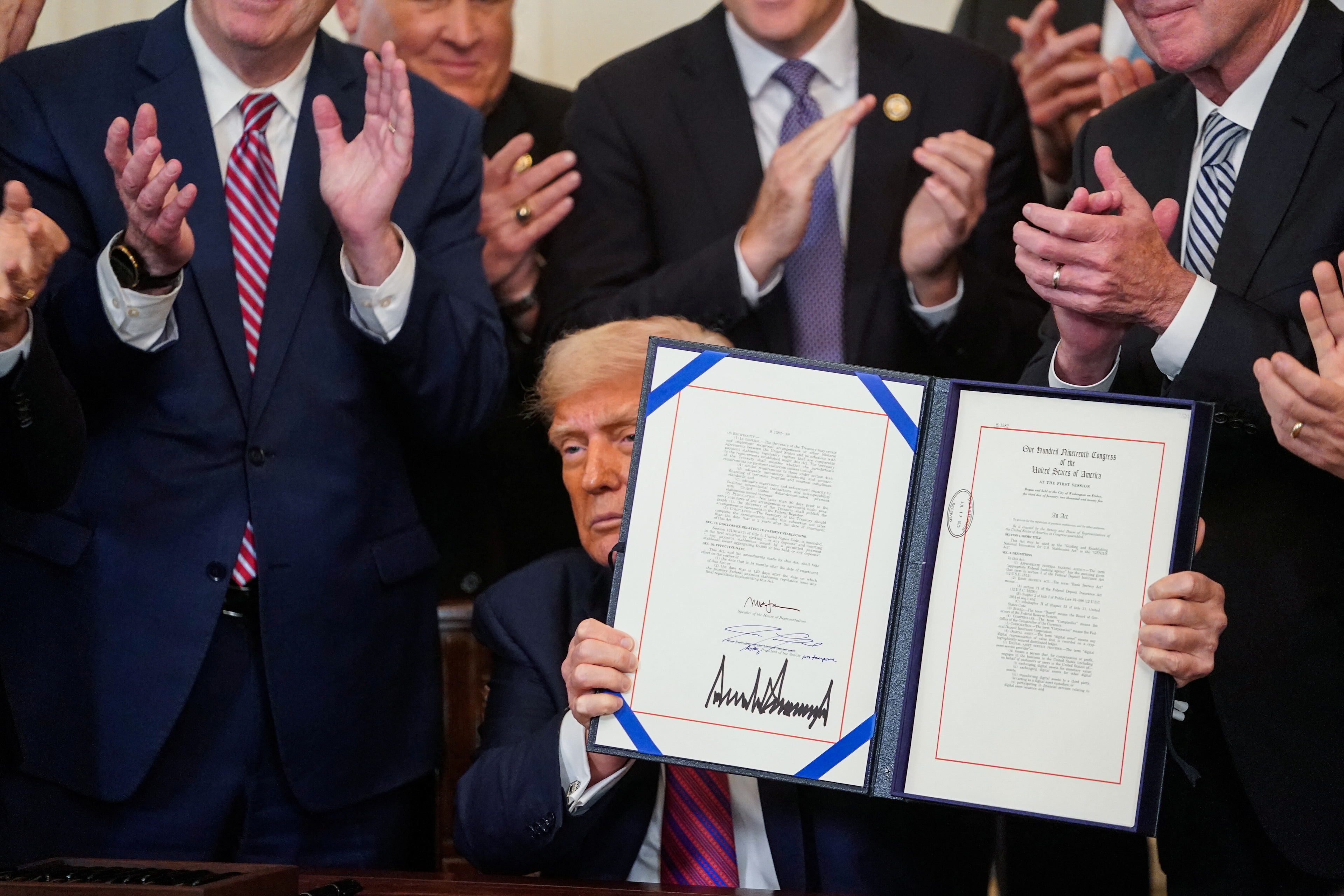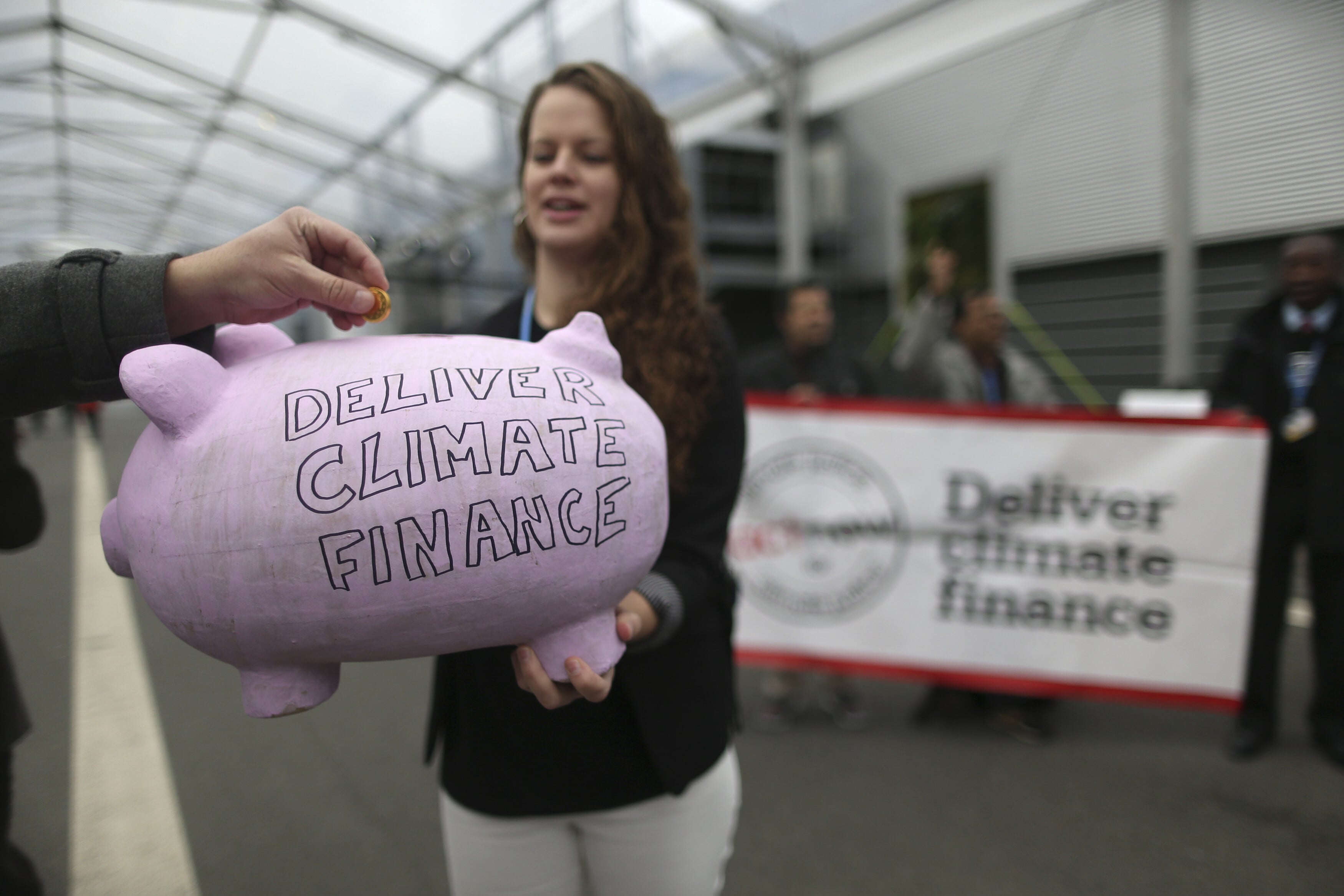Davos download: global economic warming
Reflections on Davos show a warming economic environment, and cooling geo-politics
Stay up to date:
Financial and Monetary Systems
The cold was deep in Davos this year. Minus 20 degrees Celsius is biting in the cheeks. The economic optimism of the US businessmen and women present was in sharp contrast to the chilling temperatures. The business cycle is warming up. Whether it was banking, trucks and autos, chemicals, mining, energy or construction, optimism was clear. The Trump administration is expected to reduce the regulatory burden, to invest in infrastructure, and cut taxes. The US business sector seems convinced that this will trigger a broad capital spending-led recovery. Investments in production plants, residential housing, extraction of oil and minerals, roads, ports and railways will push new demand into the economy. The reduced regulatory barriers, increased availability of cheap energy resources and lower taxes will reduce costs and increase supply side flexibility.
For the banker, interest rates trending upwards makes the environment less challenging. At a minimum Dodd-Frank and the Volcker Act will be implemented with softer requirements. American bankers in Davos were wholeheartedly convinced that the new administration will reduce regulatory requirements. In the short term this will boost growth in the USA, but in the longer run the uncertainty and risk of future financial turbulence will increase.
Macro-forecasts seem to be in line with business sentiment and the projections of growth in the US are being revisited upwards. The IMF is raising the forecast for 2017 for the USA (2.3%), Germany (1.5%), UK (1.5%), Japan (0.8%) and China (6.5%). Other forecasters are actually even more optimistic about growth in the USA and expects GDP-growth to get closer to 3% for the first time in a decade. The fall of the pound sterling helps the UK and the banking crises in Europe are starting to abate. China and India are continuing to print high numbers and Russia and Brazil are getting closer to dry land. For the first time in more than a decade we have a reasonably broad based recovery in the global economy.
There are good reasons to be optimistic about the US in the short run. There is, however, a risk that the legacy of the demand stimulus in 2017-2019 will be costly in the long run. The US federal deficit is slightly below 4% of GDP, while government debt is at 110% of GDP. In the long run the demography is pushing expenditures upwards. Increasing health care costs and an ageing labour force will be a heavy burden for public finances.
To push growth to the range of 3.5-4% the new administration is talking about will be very difficult. The combination of low productivity growth, low investments in machinery and equipment in the post-Lehman period and demographic factors has reduced potential growth to 1.5-2.0%. There are no reforms that could boast potential growth to 3.5-4% in the short run. The labour market is already flexible, the entrepreneurial climate is strong and it takes time to build infrastructure or improve the education system.
The only way to get growth up to 3.5-4% in the short run is a massive Keynesian demand programme.
To reach growth above 3.5% would require a deficit close to at least 6-7% of GDP in 2017-2019. Already in 2020 the debt level would have increased to above 130% of GDP, in the same neighbourhood as Italy and Portugal, but still some way to go to the debt level of Greece or Japan.
Given that unemployment in the US already is below 5% this Keynesian demand push should lead to higher inflation expectations and raising interest rates and push the dollar to much higher levels. It might be that the fiscal conservatives in Congress and the Senate will moderate Trump, but it is clear that deficits will be substantially higher than expected. Paul Ryan might not be fully twitter-proof.
In the short term, particularly in low interest environment, this is not a catastrophe. The problem is what will happen in the medium term perspective. In the next down turn the policy space in the US will be very limited. The dollar is a reserve currency and the US has many more degrees of freedom than any other country. But is also clear that a debt level at 130% of GDP and on a raising trajectory cannot be ignored.
It is also very likely that the new administration's economic policy will come into conflict with Federal Reserve. If Trump launches a programme of new spending and tax cuts when unemployment is below 5% this will push long bond rates upwards and that will lead to an appreciation of the dollar and undermine the competitiveness of the US economy. This goes against the core of Trump's ambition to export more and produce more in the US. The Fed could probably accept inflation above 2% for some time without getting too nervous, but a deficit of 6-7% at full employment could push inflation well above 3% and then the Fed would be forced to hike rates more aggressively. To some extent Trump is going to counter the cost push with deregulation, but it is clearly difficult to assess the short term impact on inflation expectations.
Even if the Fed would accommodate Trump it is difficult to see what they can do to prevent the dollar from rising. If the economy is growing, inflation is increasing and the yield curve is steepening, currency intervention is impotent. Currency intervention that goes against inflation expectations and monetary policy is about as efficient as a water pistol in a forest fire. Given Trump's confrontational attitude towards the rest of the world it is highly unlikely that there will be a new type of Plaza Accord.
The main takeaway from Davos 2017 is the strength of the optimism of the US business sector. There are clouds on the horizon that are worrying but so far that has not dampened the enthusiasm.
We have to take the Trump administration's rhetoric on trade seriously. This is a core promise to the voters and a deep and long-held belief from President Trump. Trump can not back down and he has no interest in backing down.
In Davos it was also made clear that Trump will meet resistance. Neither the Europeans or the Asians will back down. Given that the WTO agreement gives limited leeway to protectionism this raises the uncertainty on whether Trump will respect the international institutions or if we are seeing the end of the current free trade agreements.
In Davos the rising strength of China was more than evident. President Xi Jinping delivered a strong message and the Chinese delegation was bigger than ever before. China supports a global economic order built on cooperation, free trade and the free market economy. China is also pushing forward with economic reforms, according to President Xi. 2017 is the year when China's nominal GDP in dollar terms will surpass the Eurozone. Even with a growth rate of 6.5% it will only take a decade for China to reach a GDP of 20 trillion dollars and China will surpass the whole of Europe during the period. Europe is adding a trillion in GDP every five years and China is adding almost a trillion a year in growth. In 2017 the contribution of China to global growth will be twice as high as Europe and the US and bigger than their combined contribution.
China will respond hard if America initiates a trade war. To engage China in a conflict via Twitter will bring the public into the conflict directly and that will escalate the stakes on both sides immediately. The Chinese culture does not allow the leadership to lose face, while nationalistic sentiment is also strong. In the autumn the party congress will elect a new leadership and given that five of the seven members of the standing committee of the politburo is leaving due to age limits, it is essential for President Xi to consolidate his position. President Xi can not afford to be perceived as being weak.
The Chinese are in a strong position. They primarily export goods to the US that could be sold on the world market. A large part of Chinese export is US firms importing production components. A tariff on the iPhones assembled by Foxconn will hurt the US much more than China. China's biggest import ticket from the US is aircrafts, trucks and autos. It is not that complicated to switch to Airbus. China is also importing a lot of agriculture products from the US. To buy soya beans and corn from Canada and Brazil is easy. Tariffs on agriculture will also directly hurt Trump's voters. China has prudently steered its trade relation towards Trump-proof territory. The reaction from the Chinese public, at least if it follows what we saw when China and Japan clashed a couple of years ago, will lead to a sharp drop in demand of anything labelled "Made in America".
The Chinese economy has decelerated over the last few years and inflation is low. Two-precent inflation in an emerging growth economy is close to deflation. It is easy to argue for a more expansionary monetary policy in China. If China accelerates the moved towards a floating exchange rate today that would imply an depreciation. If China lifts the restrictions of private capital that would push the renminbi down further. Today China is losing reserves trying to prop up the currency, if they abstain from "manipulating" the currency China will gain a massive competitive advantage. The US, Europe and IMF has criticised China for keeping the currency artificially low, but those days are over.
The IMF and others are arguing that China should deal with the debt situation. Debt restructuring in China does, however, have some implications. The central government is in a strong position and could issue bonds to generate enough firepower to restructure indebted regional governments and State-owned Enterprises (SOE). The most logical policy would be to do that on the back of substantially looser monetary policy. Given that fiscal space will be occupied by restructuring that would be the logical alternative.
One possible response to Trump from China could be to further open the balance of payments regime and accept that the currency depreciates. With a very large export sector a currency depreciation would rapidly transform into higher growth. China still has the ability to flood the world markets with mobile phones, computers, t-shirts, plastic toys, cars and steel without even reverting to tariffs or manipulating it's currency.
For the rest of Asia the Trump administration is reinforcing the ongoing rebalancing towards China. Many Asian countries already have an export share with China of 20-30%. When the US is retreating and is being perceived as an unreliable partner the only alternative is to strengthen the relationship with Beijing. This would inevitably have happened over the next coming decades, but Trump has fast-forwarded this development.
It is highly unlikely that Europe would provide any support to the US. Trump's attacks on the transatlantic link and Nato have not been taken kindly. US re-engagement with Russia at a time when Putin has increased the pressure on Russia's neighbours has further deepened the Atlantic-divide. The Trump administration is probably the most isolated US administration for at least a century.
In Europe, there is hope that the coming election in France could lead to structural reforms. There is, for the first time in several decades, a real possibility that France is starting to open up the labour market, reduce barriers on the domestic sector and cut taxes to improve the business climate. There is a possibility that the presidential election and the parliamentary election will bring surprises, as we have seen during 2016, but it is also possible that the outcome will be a growth friendly outcome. In France that is a unique opportunity.
The banking sector has been a major drag on growth in Europe. The recovery of the stock prices the last couple of months comes on the back of raising interest rates, somewhat stronger demand and somewhat lower uncertainty concerning how Italy will deal with the non-performing loans. The new administration in the US will also mean that the Basel-process will going much slower and it is unlikely that the US will sign up to any international agreement on further tightening of capital requirements. In the short term this will push bank stocks further upwards also in Europe. In the long run another banking crises has become much more likely. This time will not be different.
Brexit remains a source of concern. The new position presented by Theresa May and Philip Hammond in Davos was unavoidable. If the British Government wants to regain control over its borders and is unwilling to contribute to the EU budget there will be no access to the single market. The British Government did not present a new position in Davos - they stated the obvious consequence of the Brexit vote.
The depreciation of the pound sterling, easier fiscal policy and some structural measures, particularly lower corporate taxes, has compensated in the short term. The UK is now the fastest growing G7-country at 2.2% year-on-year. Slightly less impressive from a Swedish perspective were the latest GDP numbers at 2.8%. Only Spain and the Czech Republic are outgrowing Sweden (I can't resist mentioning that the budget for 2015 was the last of the nine fiscal programs with my signature on it). In the long run, however, Brexit will be very problematic for Europe. The balance in Europe is shifting towards the south and the traditional supporters of openness and free markets will be weaker. The most dynamic economy has left Europe and that will be costly for Brussels.
The ongoing challenge for Europe from migration has abated but not gone away. More than a million refugees, who have arrived over the last few years, have to integrate in the labour market. The security situation has improved in Syria and Iraq, but ISIS is far from defeated and radical islam will continue to pose a threat in the Middle East and in Europe. The lack of economic development in the Middle East and in combination with a very young population will create an underlying long term engine for migration. Hundreds of millions of young men and women in the Middle East and North Africa have no better alternative than to try to make the crossing to Europe.The Mediterranean Sea can never be controlled and Europe has to step up the common efforts over years to come. A wall can not be built in an ocean.
One of the main implications of the changing environment with increasing geo-political risks is that Europe must take a much broader responsibility for security. On the back of the shale oil-revolution the Middle East has become less of a strategic interest for the US. President Trump is reinforcing this tendency. The Middle East has gone from being of geo-political interest of the US to a migration problem for Europe. The only way Europe can rise to the challenge is if Germany reinforces it's efforts and takes on a broader leadership role for Europe. If Germany would fulfill it's NATO-obligation of spending 2% of GDP on defence, Europe would be a real force to reckon with and the European Union would be able to take over some of the efforts of the US in the Middle East. Over the coming years the challenge from President Trump has made it inevitable that Germany will become the leading power in the European Union on all aspects.
The expected climate warming between the US and Russia is coming on the back of a broader recovery for Russia. Oil prices are obviously supportive, but the turn around is broader. The Central Bank of Russia has successfully manoeuvred the bad weather the last few years. The reforms of the fiscal regime, with much tighter requirements for spending the oil surplus, will further reinforce a strong fiscal position. In Davos it was clear that Russians already feel less isolated than for some years. There are also many discussions of coming structural reforms. The coming report from Alexi Kudrin will present a broad programme to open and revitalize the Russian economy. President Putin will back down on some of the more difficult suggestions, but there will be structural reforms in Russia in the coming years. The Russian economy and the Russian ruble have turned a corner.
Leaving Davos on a bus to Zurich, as you leave the freezing cold Alpine winds behind you, you can not avoid feeling that the business climate is getting much warmer. But it is also clear that the political climate could be heading towards a long, cold and dark winter. It might not be a new ice age coming for globalization, but it is clearly a deep permafrost that is gripping the liberal political world order we have known over the last two decades.
Don't miss any update on this topic
Create a free account and access your personalized content collection with our latest publications and analyses.
License and Republishing
World Economic Forum articles may be republished in accordance with the Creative Commons Attribution-NonCommercial-NoDerivatives 4.0 International Public License, and in accordance with our Terms of Use.
The views expressed in this article are those of the author alone and not the World Economic Forum.
Forum Stories newsletter
Bringing you weekly curated insights and analysis on the global issues that matter.
More on Financial and Monetary SystemsSee all
Sandra Waliczek and Harry Yeung
July 29, 2025
Pranidhi Sawhney and Adam Skali
July 29, 2025
David Carlin and Sourajit Aiyer
July 28, 2025
Veronica Frisancho
July 22, 2025
Jesus Serrano
July 14, 2025





